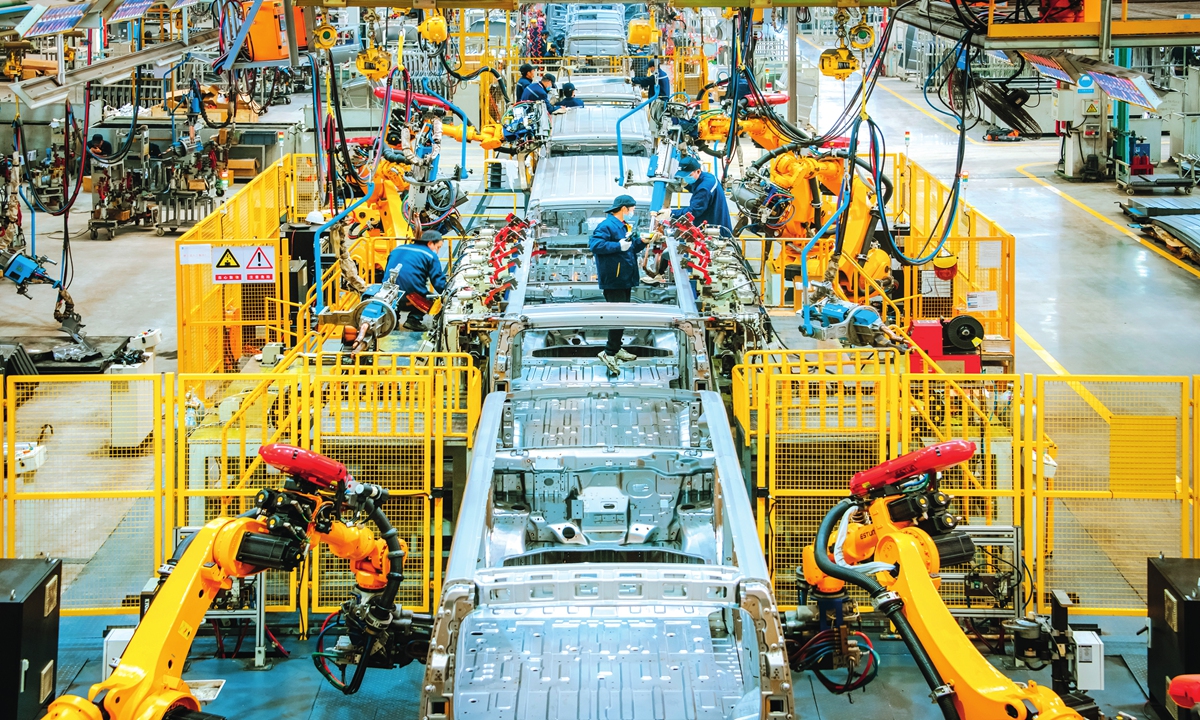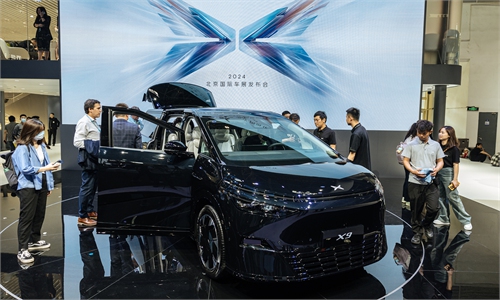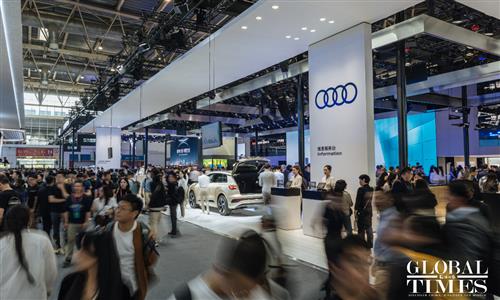
Staff members from a local NEV enterprise catch up on orders on the production line in Ganzhou, East China's Jiangxi Province on December 26, 2023.Photo: VCG
China announced an auto trade-in policy recently to encourage scrapping of more polluting vehicles for new-energy vehicles (NEVs) or fuel-efficient cars. Industry experts predict the policy will generate demand for millions of new car sales, opening up a huge market for NEVs.
The trade-in policy, as part of an action plan to foster large-scale equipment renewals and trade-ins of consumer goods, will offer a fixed one-time subsidy of up to 10,000 yuan ($1,378) to individuals who scrap vehicles that are only compliant with China's III emission standards or below.
The nation's NEV market is experiencing a rapid growth, and the new trade-in policy alone could fuel as many as 2 million NEV sales this year, Cui Dongshu, secretary-general of the China Passenger Car Association (CPCA), told the Global Times on Sunday.
As of 2023, China had about 260 million passenger cars, 15.83 million of which were below the China III standard. These vehicles have been running for more than 13 years, and they are often in poor condition and highly polluting.
With the new trade-in policy, there will be strong consumer demand for newer, cleaner vehicles, according to Cui.
Experts said that the trade-in plan could promote NEV sales and inject vitality into the robust market while advancing the country's green transition.
Jia Xinguang, a veteran car industry observer, agreed with that assessment. Jia highlighted continued strong demand for NEVs in China's domestic market, with no problem of overcapacity in sight.
NEVs still account for a modest proportion of all passenger cars in China, indicating significant room for further development. With these demand prospects, there is no issue of overcapacity in China's NEV industry, said Jia.
The domestic NEV market had maintained a rapid growth in March, with retail sales reaching 709,000 units, up 29.5 percent year-on-year, according to the CPCA.
Experts noted that China's developing new-energy sector is playing a critical role in addressing global climate change challenges by providing environmentally friendly products.
With new emission standards and the rapid development of NEVs, pollution caused by older vehicles has become an increasingly prominent issue. These older vehicles should be quickly phased out through the trade-in policy to reduce pollution and protect the environment, Jia said.
China is playing an important role in the global reduction of emissions and response to climate change. The West's accusations of overcapacity stem from a desire to protect their domestic industries and concerns over China's rapidly growing new-energy sector.
These accusations often overlook market demand and the realities of the global supply chain, explained Wang Peng, an associate research fellow at the Beijing Academy of Social Sciences.



